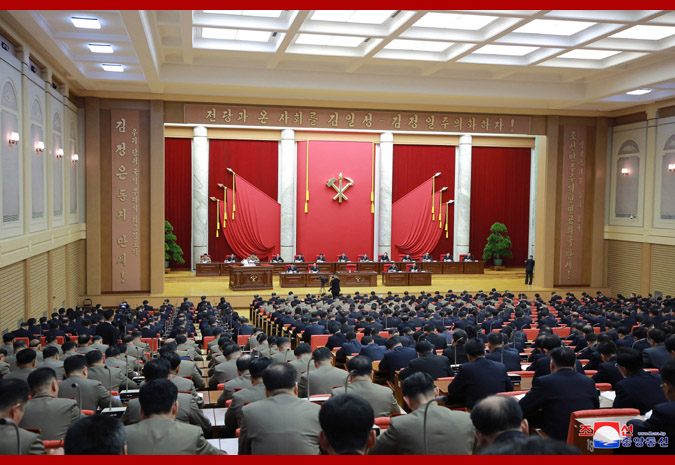The Democratic People's Republic of Korea (DPRK) appointed Kim Jong Gwan, who previously served as vice minister of the People's Armed Forces, as its new defense minister, Korean Central News Agency (KCNA) said on Wednesday.
News of his promotion came in a KCNA report on a Tuesday meeting of officials discussing issues related to forest recovery and environment protection, in which he was referred to as "Army General Kim Jong Gwan, minister of the People's Armed Forces."
The report also suggested that No Kwang Chol, the previous minister, has stepped down from his post.
No had served as the DPRK's defense minister since June 2018, and was last referred to as holding the ministerial position in late October last year.
His replacement, Kim Jong Gwan, first appeared in state media in December 2013.

The plenary meeting of the Central Committee of the Workers Party of Korea in Pyongyang, the Democratic People's Republic of Korea, December 30, 2019. /KCNA Photo
The plenary meeting of the Central Committee of the Workers Party of Korea in Pyongyang, the Democratic People's Republic of Korea, December 30, 2019. /KCNA Photo
Kim is known to have spearheaded Pyongyang's military-led construction works such as building the Wonsan-Kalma Coastal Tourist Area and Yangdok Hot Springs Resort, according to Yonhap.
His name has appeared in state media multiple times alongside Kim Jong Un during the DPRK leader's on-site inspections of those two projects.
The DPRK leader is pushing to nurture a competitive tourism industry as he wants to attract more foreign travelers and hard currency in an apparent bid to counter international sanctions weighing on its economy, Yonhap said.
The DPRK said earlier this month that it carried out a major cabinet reshuffle during a four-day plenary session of the Workers' Party of Korea at the end of last year.
Read More:
DPRK calls for 'diplomatic, military countermeasures' ahead of year-end deadline
KCNA reported at the time that he was elected as an alternate member of the powerful politburo, carrying a photo of him wearing the insignia of the four-star rank. But it did not provide details on his government position.